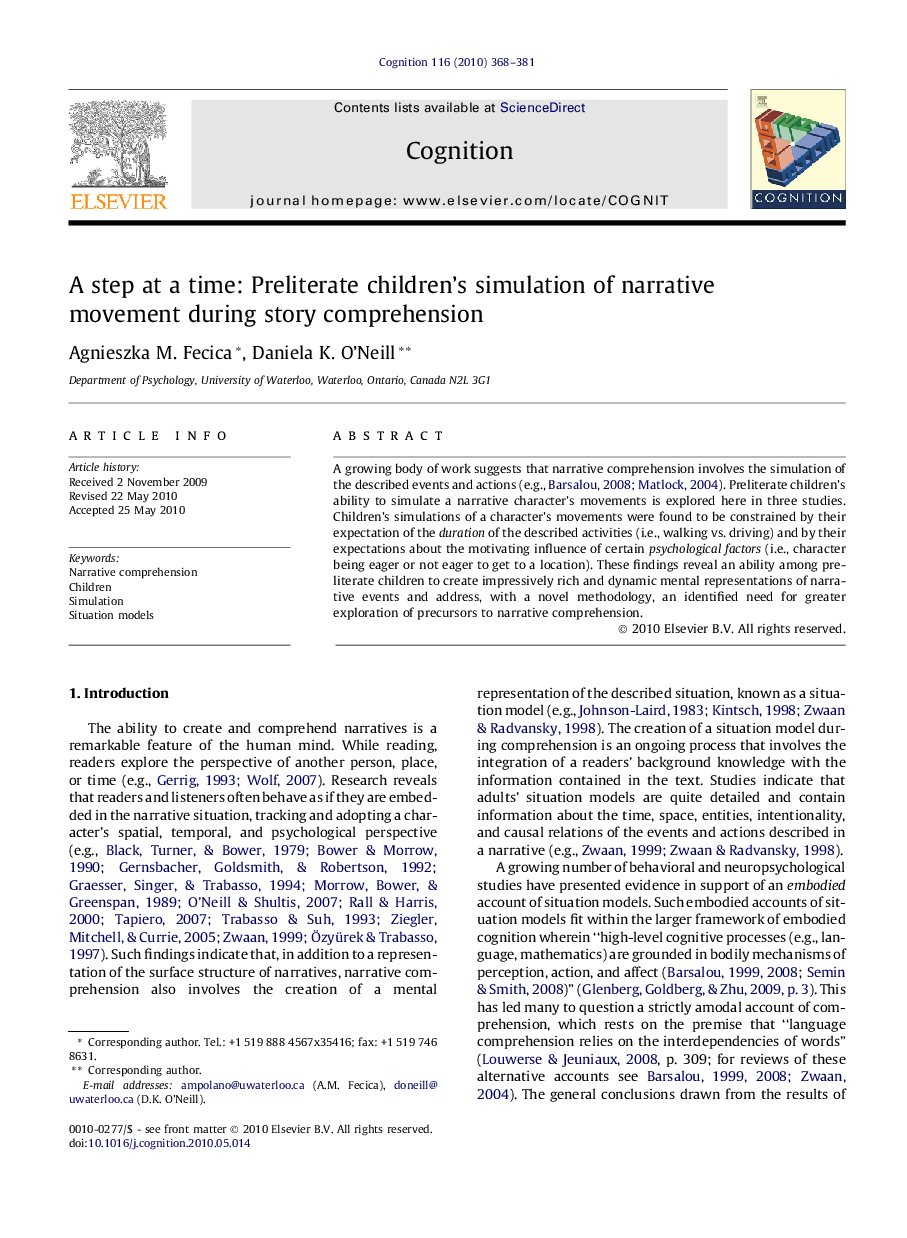| Article ID | Journal | Published Year | Pages | File Type |
|---|---|---|---|---|
| 926739 | Cognition | 2010 | 14 Pages |
A growing body of work suggests that narrative comprehension involves the simulation of the described events and actions (e.g., Barsalou, 2008 and Matlock, 2004). Preliterate children’s ability to simulate a narrative character’s movements is explored here in three studies. Children’s simulations of a character’s movements were found to be constrained by their expectation of the duration of the described activities (i.e., walking vs. driving) and by their expectations about the motivating influence of certain psychological factors (i.e., character being eager or not eager to get to a location). These findings reveal an ability among preliterate children to create impressively rich and dynamic mental representations of narrative events and address, with a novel methodology, an identified need for greater exploration of precursors to narrative comprehension.
